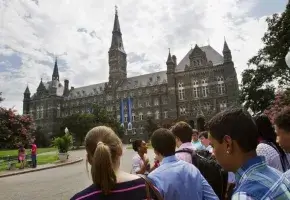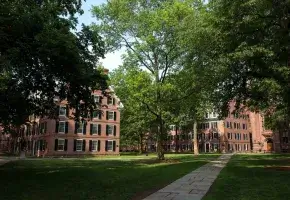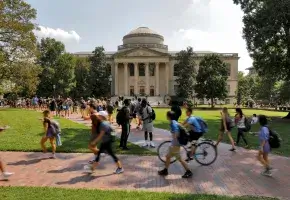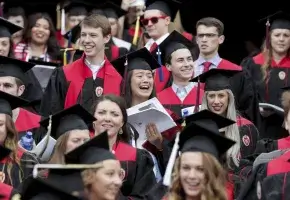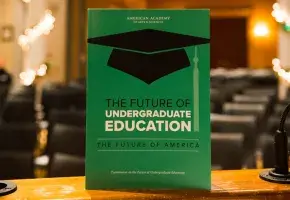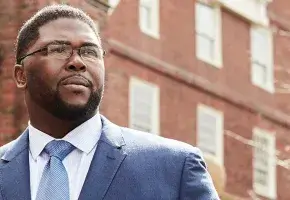Commission on the Future of Undergraduate Education

Drawing from national leaders in education, business, and government, this Academy commission analyzed the current state of undergraduate education and offers recommendations to improve the quality of student learning, increase college completion rates, and ensure all students have access to an affordable postsecondary education.
The Future of Undergraduate Education, The Future of America
Our nation’s effort over two centuries to provide education to everyone who lives and works within the United States is an expression of a core belief, one that has survived a long history of challenges: that all people, through learning, can achieve higher goals for themselves and for society as a whole.
Progress toward universal education has expanded most recently to colleges and universities. Today, almost 90 percent of high school graduates can expect to enroll in an undergraduate institution at some point during young adulthood and they are joined by millions of adults seeking to improve their lives. What was once a challenge of quantity in American undergraduate education, of enrolling as many students as possible, is now a challenge of quality—of making sure that all students receive the rigorous education they need to succeed, that they are able to complete the studies they begin, and that they can do this affordably, without mortgaging the very future they seek to improve.
The American Academy of Arts & Sciences formed the Commission on the Future of Undergraduate Education to develop a national strategy to help students and their families, colleges and universities, government policy-makers, and business leaders and philanthropists reach this next level. The future success of our democracy, our economy, and our nation will depend on our commitment to an inclusive ideal of an educated society.
Learn more about the priorities outlined by the Commission in its final report, The Future of Undergraduate Education, The Future of America:
- Priorities for Federal Policy-Makers
- Priorities for State Policy-Makers
- Priorities for College & University Leaders
View videos featuring innovative, successful, and replicable approaches to each of the Commission’s three national priorities.
People
Roger W. Ferguson
Michael S. McPherson
Joseph E. Aoun
Deborah Loewenberg Ball
Sandy Baum
Rebecca M. Blank
John Seely Brown
Wesley G. Bush
Carl A. Cohn
Mitchell E. Daniels
John J. DeGioia
Jonathan Fanton
Robert Hormats
Freeman A. Hrabowski
Jennifer L. Jennings
Jeremy Johnson
Daphne Koller
Sherry Lee Lansing
Nicholas B. Lemann
J. Michael Locke
Monica Cecilia Lozano
Gail O. Mellow
Diana Natalicio
Hilary Pennington
Beverly Daniel Tatum
Shirley M. Tilghman
Michelle Weise
Thomas Bailey
Sandy Baum
Ronald G. Ehrenberg
Bridget Terry Long
Judith Scott-Clayton
Outreach
Outreach is focused on engaging federal and state policy makers, academic leaders, and funding organizations in a discussion of the Commission’s findings. The goal of these efforts is to advance a broad set of recommendations aimed at improving the quality of undergraduate education, increasing completion rates, and ensuring that college education is affordable.
Commission and Academy staff connected with influential audiences through conference presentations, board meetings, and briefings. For example:
- Members of the Commission and Academy staff briefed federal policymakers in over 40 meetings with members of Congress or their staff and the U.S. Department of Education; testimony before the U.S. Senate Committee on Health, Education, Labor, and Pensions; and presentations to federal advisory groups including the National Science Board and the National Science Foundation’s Advisory Committee to the Directorate for Education and Human Resources.
- Commissioners connected with state policymakers and academic leaders in state-focused meetings in Kentucky, Wisconsin and Washington State.
- The Commission’s work was presented to funding organizations including the Andrew W. Mellon Foundation and the Fish Family Foundation.
- Members of the Commission delivered keynotes and presentations at nine national and regional conferences for higher education leaders.
- And the Commission has participated in interviews and correspondence with media outlets including The Wall Street Journal, WGBH, WAMU, The Chronicle of Higher Education, Inside Higher Ed and The New York Times.
Learn more about the Commission on the Future of Undergraduate Education's influence:




